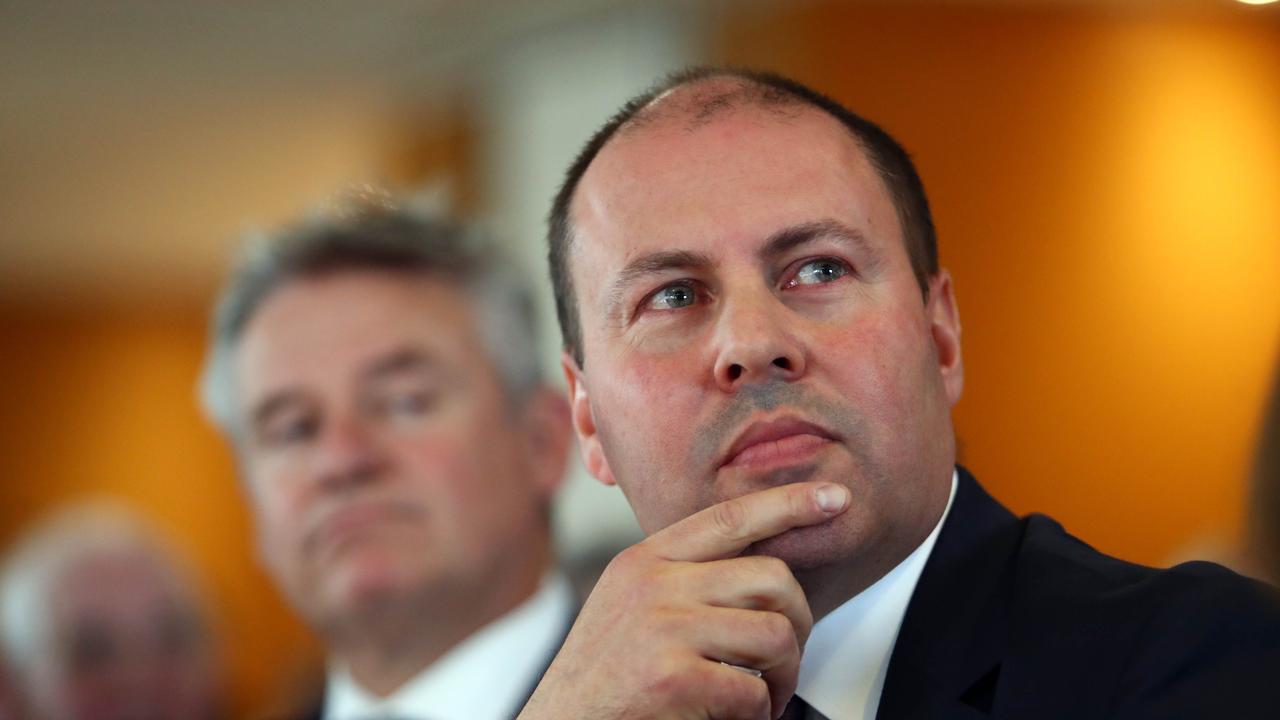Brexit vote: It was time to go, and Britain has led way
The good guys won, it’s that simple. Exiting the EU will unquestionably be positive for Britain.
Britain’s departure from the European Union will unquestionably be good for Britain. It will even be good for Europe if the broader forces it unleashes put an end to the sclerotic, dysfunctional, profoundly illiberal and anti-democratic, destructively dead-end “European Project”.
It will not of course deliver the world, Europe or even Britain into “broad sunlit uplands” the way the author of that quote did — for all three — 70 years ago.
The mostly self-imposed disasters-in-waiting scattered through the global economy and financial markets are far more threatening and more immediate than any Brexit benefit that might eventually evolve.
But the vote outcome remains a huge plus that can be built on. The biggest potential flows from the way the ordinary British voter rejected the instructions of the ‘‘very stupid right-thinking clever people’’ who infest the world and especially policy and decision-making circles.
I don’t want to over-personalise it, and there are quite literally thousands of prominent people around the world who I could nominate, but if IMF chief Christine Lagarde is against it — and she was — then I’m in favour of it.
Indeed, you might see the single most hopeful product of this revolt of the ‘‘very clever wrong-thinking stupid (sic) people’’ as the potential for it to roll back hopefully the greatest and most pervasive exercise in a ‘‘clothes-optional emperor’’ the world has ever seen — the great Global Warming Scam/Stupidity/Insanity.
First, the global ‘‘risk-off’’ market reaction: equity values down (at least, in the initial panic) by something north of a trillion dollars; bond values going in the opposite direction, with the flight to safety pushing already near-zero yields even lower; and global currency gyrations around a plunging pound.
It was always going to happen. All, or almost all, the financial investment decision-makers had drunk the Brexit-spells-GFC-Mark-II Kool-Aid.
We saw it quite deliciously through the day in our own market, as it gyrated around the progressive vote, before falling right away on the Brexit certainty.
What leveraged the reaction was the rise and rise in global markets running up to the vote. This was not driven by any opinion poll logic, but the ‘‘clever people’’ assumption that of course the British voter would either do what he or she was told or be scared enough into it.
That overbought position running into the vote doubled down on the reaction.
Narrowly in itself, all this will soon peter out when it becomes evident that the sky won’t be falling any time soon as a result of the vote itself. First, nothing will actually happen for a number of years; but even the eventual ‘‘happening’’ — Britain exiting the European Union — is not going to trigger anything significant.
More broadly, there is no catastrophic implosion that flows from the vote event, in the way there was, in a whole range of markets, in the wake of Lehman in 2008 and indeed was potentially the case even for ‘‘tiny’’ Greece in its crisis.
A lot of the sheer mindless stupidity about supposed implosion consequences is captured in the big drop in the value of the pound. It fell to levels “not seen since 1985”, said with the tone of impending consequent catastrophe.
Have these idiots — among “the very stupid clever people’’ — noticed the great game of recent years: central banks and sovereign governments playing ‘‘beggar-my-neighbour’’ efforts to get the values of their currencies down.
Suddenly all of British industry has instantly achieved a 10 per cent competitive devaluation. Who wouldn’t conclude, “When Harry met Sally” style: “I’ll have what the Brits have just had.”
The same applies, with bells on it, to British property. Overnight it got 10 per cent cheaper to virtually everyone else on the planet, Chinese communist billionaires and Russian oligarchs alike, in reaction to an event which makes London and Britain even more desirable as a place to own property!
That’s a Britain, to stress the point, outside the utterly dysfunctional EU.
So, yes, narrowly, yesterday produced an equity-buying, bond-selling, currency-twiddling (and British-property-buying) opportunity.
Except, that is, for that broader, greater, grim global reality, which will probably be made grimmer precisely because central banks will overreact to the Brexit “disaster”.
We already saw the Fed do that last week, when once again the great blinker, Fed head Janet Yellen, grabbed at the coming Brexit vote as yet another reason not to raise US official rates.
We will see the Fed, the ECB and the Bank of England all doubling down on their low-rate/QE policies.
Those policies are not only significantly less than effective in stirring real economy activity, they are building bubbles in global asset markets that are going to be popped with worse outcomes than 2008.
So you have to balance the two. The over and misdirected reaction to the Brexit vote created buying opportunities. But it is buying opportunities into heavily overpriced markets which are heading inevitably and irresistibly to an ultimate fall.
On the bigger canvas, when Britain went into the European Community in the 1970s, it made sense for it to do so, and the EC that it went into was — broadly — a force for good, deregulating markets and breaking down trade barriers.
But it was a community that was dragged irresistibly from one of just integrated markets to one of greater, more oppressive regulation and rule-by-bureaucrat in the absence of full political union.
Along the way the Euro evolved into a protection racket for super-efficient Germany and the mendicant Mediterranean economies. It was time to go. For Britain, the honour and reward of being first.








The good guys won. It is as simple and as momentous as that.